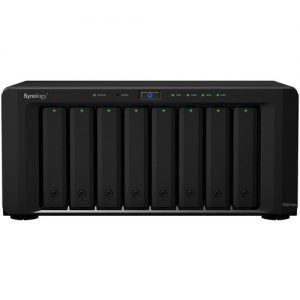So, you’re on the hunt for a new web host and you’ve found a bargain. You jump at their cheap introductory prices and launch your website. It’s all well and good until, one year later when you go to renew your web hosting plan – you get a nasty shock when you see the bill.
Why has the price gone up so much? Well – welcome to the world of hosting renewal prices!
Table Of Contents
We’re going to walk you through the ins and outs of hosting renewal prices and how to understand them when you’re shopping around for the best web host.
Understanding Web Host Renewal Pricing
The first thing we want to make clear is that “renewal pricing” can mean a lot of different things depending on the context in which it appears.
- In some cases, renewal pricing refers specifically to the length of time until your site will be hosted again after its current contract has ended.
- In others, it can refer to the total price charged by your web host every month (which includes everything from bandwidth usage to storage space).
On the other hand, promotional pricing is where a company offers a lower rate during certain periods of time. So if they were going to raise your renewal price after a year or two, they would first hold off on doing so until after that point—and then raise your renewal rate as soon as possible after the promo period ends.

Why Oh Why Do Hosting Companies Do This?
Well – there are two main reasons.
First, they can make more money during their promotional periods by charging less per month than they would later on.
Second, they can get more customers during the promo period because people are excited to get a good deal, which means they’ll stick around longer than usual (and, therefore, pay more per month).
So why should you care about all this? Because if you don’t know what renewal prices are or how they work together with promotional periods, you might end up paying more than you expected to pay.
Why Do You Need to Be Careful About Renewal Pricing?
When you’re looking for a web hosting package, you’re probably going to find some pretty good deals on promotional pricing. But what you don’t always realize is that after the promotional period ends, the company can raise its renewal pricing.
If you don’t pay attention to the renewal pricing, you end up paying more than you would have if you had just done some research beforehand.
Some Examples of Sign-up vs. Renewal Prices
Now that you understand what renewal pricing is, let’s look at a few examples.
If you sign up for a web hosting package with promotional pricing of $10 per month and the company offers free setup and no long-term contract, you only pay that rate as long as you remain with them.
However, if the company offers a long-term contract, you’ll usually start off paying the promotional rate for a certain amount of time—say, one year. At the end of that period, your renewal pricing rate goes into effect, which can be higher than the original promotional rate you signed up for.
Some hosts like Hostinger make this information easy to find, as they clearly spell out the renewal pricing in their terms of service. Other hosts even offer a “Pay For What You Need” plan, which makes it easier to determine how much you’re going to be paying when your promotional period comes to an end.
Here are a few popular web hosting services and their renewal pricing policies:
1. GoDaddy Renewal Pricing
GoDaddy makes it quite clear what their renewal prices are. Their plans start at $5.99/month and renew at $8.99/month after the contract term.

2. Hostinger’s Renewal Pricing
Hostinger does a good job of spelling out exactly how much you’ll be paying once you’re off their introductory offer. Plans start at $1.99/month and then renew at $3.99/month.

3. A2 Hosting’s Renewal Pricing
A2’s renewal prices take a pretty high leap upwards. The lowest tier is $2.99/month at sign-up and jumps to $10.99!

4. Bluehost’s Renewal Pricing
Similar to A2, you can get the Bluehost Basic plan at $2.95/month – though it then skyrockets to $10.99.

5. HostPapa’s Renewal Pricing
HostPapa’s renewal pricing is quite different too. Plans start at $2.95/month and renew at $8.95.

6. InMotion Renewal Pricing
InMotion starts at $2.49/month and then jumps up to $8.99 when you renew.

7. Kinsta Renewal Pricing
Kinsta might be on the expensive side, but as we’ve checked, the price stays as is whether you’ve just signed up with them, or if you’re renewing a plan later down the line. Users definitely won’t be getting any nasty surprises.

Comparing Various Web Hosting Renewal Prices
Ready to get your website up and running? Let’s take a look at the web hosting services available so you can find one that perfectly meets all of your requirements.
Generally, most hosting plans show their renewal price when you compare the plans. When you see a higher price that has a strikethrough, more often than not that’s the renewal price.
AccuWeb has a clearer renewal price disclaimer for each plan, and you’ll only have to hover your mouse cursor to see this. In other hosts like Hostinger, you’ll need to process your order before you can confirm the renewal price.
What About Domain Name Renewals?
Domain name renewals are a separate service from hosting, and the pricing for this type of renewal is usually much higher than that of hosting services. With most domain registrars, you can renew your domain name for up to 10 years at once.
This allows you to pay a lower yearly price instead of having to renew every year. If you plan on keeping a domain name for a long time, it’s generally best to go with the longer renewal period.

Is It Difficult to Migrate to a New Web Host?
If you’re not happy with paying a renewal price, then you can always migrate to a new web host with better renewal pricing policies. Just make sure to plan ahead of time, so that you’re all migrated in time before your previous web hosting plan auto-renews (or worse – expires!).
The good news is that migrating to a new web host is usually a straightforward process. Most hosts provide tutorials and guides for transferring your website from one hosting provider to another. Making sure the new host supports all of the applications, databases, and other elements that you’re currently using is critical.
Some hosts will even offer free migration services if you choose to move your website over. In addition, many hosts offer a free trial period if you’re not sure which service to use.
Key Takeaway: Read the Fine Print On Renewal Prices
Hopefully, this article has served as a reminder to always be on the lookout for renewal pricing and to never assume that you know all the details about a product or service.
Promotional pricing can be a great way to save money, but only if you are aware of the terms and conditions associated with it. Be sure to read the fine print before signing up for anything and don’t hesitate to ask questions if you aren’t sure about something. Knowing what you’re getting yourself into is always the best course of action.

 Megapixel HD Wireless Day/Night Network Camera
Megapixel HD Wireless Day/Night Network Camera  Ubiquiti UniFi AP
Ubiquiti UniFi AP  Synology DS2015xs 8-Bay DiskStation NAS Server
Synology DS2015xs 8-Bay DiskStation NAS Server  Philips LCD monitor S Line 24 (23.8" / 60.5 cm diag.) 1920 x 1080 (Full HD) 242S1AE/69
Philips LCD monitor S Line 24 (23.8" / 60.5 cm diag.) 1920 x 1080 (Full HD) 242S1AE/69  ACER | Nitro 5 Gaming Laptop | AN515-58-51BY (Black) with NVIDIA® GeForce® RTX4050
ACER | Nitro 5 Gaming Laptop | AN515-58-51BY (Black) with NVIDIA® GeForce® RTX4050  Gigabyte R280-F3C Rack Mount Server
Gigabyte R280-F3C Rack Mount Server  ACER | Nitro 50 Gaming Desktop | N50-640 (i712R8512G36) NVIDIA® GeForce RTX 3060
ACER | Nitro 50 Gaming Desktop | N50-640 (i712R8512G36) NVIDIA® GeForce RTX 3060 